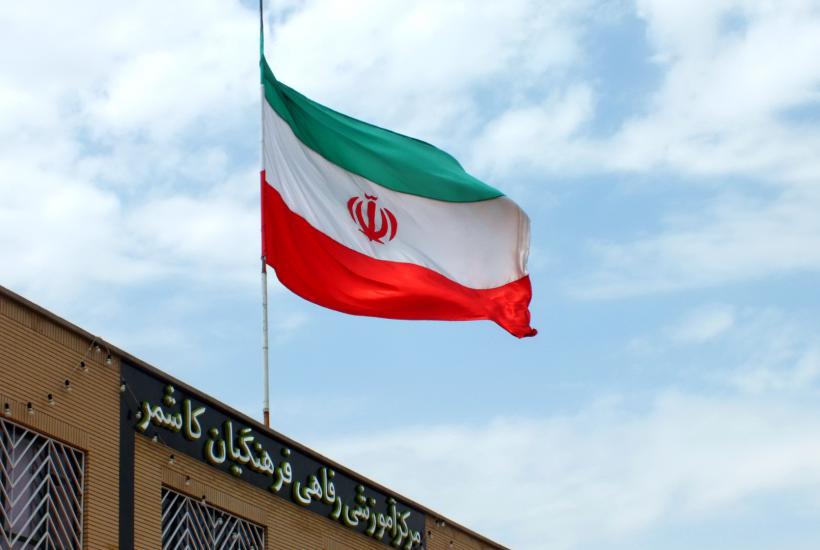Russia and Iran sign breakthrough cooperation agreement
On January 17, Russian and Iranian Presidents Vladimir Putin and Masoud Pezeshkian signed a bilateral Treaty on Comprehensive Strategic Partnership following talks in Moscow.

Photo: commons.wikimedia.org by Sonia Sevilla, https://creativecommons.org/licenses/by-sa/3.0/
Iran flag
The relations between Russia and Iran are based on the 2001 Treaty on the Fundamentals of Relations and Principles of Cooperation. The treaty is automatically extended every five years.
Moscow and Tehran assumed over the years that the document does not meet the new geopolitical realities and a higher level of cooperation. The parties proceeded to work on a new treaty in January 2022 after Ebrahim Raisi’s visit to Moscow.
Iranian Ambassador to Russia Kazem Jalali said on January 11 that the document consists of 47 articles that will determine the relations between the countries in all areas for at least the next 20 years.
“In order to update and draft a new agreement, the foreign ministers of the two countries agreed that the Islamic Republic of Iran will prepare a draft. We prepared the draft and handed it over to the Russian side,” he said in an interview with Iranian news agency IRNA. “It took about two and a half to three years, there were many meetings and discussions, numerous changes were made, until an agreement was finally reached,” he added.
The document does not provide for the creation of a defense alliance between Russia and Iran, Iranian Foreign Minister Abbas Araghchi noted.
Putin: This is a breakthrough agreement
The Comprehensive Strategic Partnership Agreement between Russia and Iran is a breakthrough document, Russian President Vladimir Putin said at a press conference following the talks with his Iranian counterpart Masoud Pezeshkian, TASS reports.
“This truly breakthrough document is aimed at creating necessary conditions for the stable and sustainable development of Russia and Iran, as well as the entire Eurasian region,” the president said.
Putin also explained the meaning of the Comprehensive Strategic Partnership Agreement signed with Iran. The Russian leader pointed out that Moscow and Tehran “are united in their desire to go the extra mile and take relations between the two states to a qualitatively new level.”
When asked how to maintain a balance of power in the Middle East, Putin said that one needs to be guided by the UN Charter.
“One should not try to use the norms of international law for some selfish interests, turning them instantaneously in a direction that is advantageous to one or a group of states. One should not replace the UN Charter with some rules that no one has ever seen,” he said.
In 2024, Russia signed two interstate agreements in the field of security:
- The Comprehensive Strategic Partnership Agreement with the DPRK (signed on June 19 during Putin’s visit to Pyongyang, entered into force on December 4), which assumes that one side will provide military assistance to the other in the event of an attack;
- The agreement with Belarus on security guarantees within the Union State (signed on December 6), which assumes that in the event of a threat to the Union State, the parties will be able to use all forces stationed in Belarus including tactical nuclear weapons.
Details
Iran officially the Islamic Republic of Iran (IRI) and also known as Persia, is a country in West Asia. It borders Turkey to the northwest and Iraq to the west, Azerbaijan, Armenia, the Caspian Sea, and Turkmenistan to the north, Afghanistan to the east, Pakistan to the southeast, the Gulf of Oman and the Persian Gulf to the south. With a multi-ethnic population of about 86 million in an area of 1,648,195 km2 (636,372 sq mi), Iran ranks 17th globally in both geographic size and population. It is the sixth-largest country entirely in Asia and one of the world’s most mountainous countries. Officially an Islamic republic, Iran has a Muslim-majority population. The country is divided into five regions with 31 provinces. Tehran is the nation’s capital, largest city and financial centre.
>



